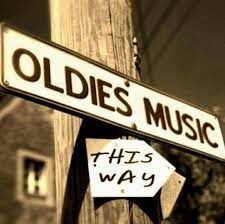I’ve always believed that good music has a magic all its own. It can inspire and excite. It can bridge gaps and unite. And it can comfort and console. In a matter of minutes, music quickly takes us somewhere else for a moment in time and it can stay with us for a lifetime. Magical music never leaves the memory.
Music is a mystical form of transportation, whether you are cruising in a car, sitting in your bedroom, or up on the roof and, much earlier in my life, it was inescapable. Virtually every week, there’d be a new song or album, a new singer or group, or a new movie with a killer soundtrack featuring tunes that we couldn’t stop singing. The music factories in New York, L.A., Nashville and Motown were constantly cranking out hits and searching for new talent.
But that was then. Now there’s less and less new music being funded and produced commercially and, more importantly, the world seems to be mainly interested in listening to “oldies but goodies.” Mainly because they don’t have much choice. The streaming services and cloud-connected listening devices have given us levels of detail and precision never available before, which has revealed that most of the music that matters these days—more than 70% of what’s being streamed, according to MCR data—is “old” stuff.
Whether that reflects some nostalgic search for comfort and security or just a desire to have lyrics that are meaningful, intelligible, and not obscene, the fact is that a constantly growing number of consumers of all ages are listening almost exclusively to old music (catalog, in the parlance) rather than current material.
No one really knows what makes a lifelong hit until the customers decide. There’s a fine line between a single and a jingle. We know for sure that the song doesn’t have to be fancy, flawless, or fashionable. It doesn’t have to be sung by a star, be the theme of a great movie, or be the 11 p.m. highlight of a Broadway play.
One reason for sure that we’re all loving the oldies is that so much of the “new” music is just more of the same “hit it and forget it” junk, which is both a disappointing phenomenon. These aren’t the instant classics of our youth. As Bob Seger would say, the music today just doesn’t have the same old soul. Screaming and swearing about booty and bling, guns and gangbangers, isn’t quite the same level of storytelling that we still love to listen to from James Taylor, Stevie Wonder, Jackson Browne, Otis Redding, or the Eagles.
Most of today’s tunes don’t have the same staying power as earlier hits. Paul McCartney’s solo masterpiece, “Yesterday,” has been offered in more than 3,000 cover versions since its release in 1965 and performed well over seven million times. Gotta wonder how many folks will be covering “WAP” especially once all the stupid liberal suburban parents figure out what kind of lyrics their teenage kids are TikTok-ing and twerking to.
Music industry old timers like to blame technology for their problems. Digital music files such as MP3s did drastically lower the bar of what passed for acceptable sound. Consumers sacrificed audio quality for compression and portability and have never really looked back. Other technologies like the old Napster made the music “free”—albeit stolen—and provided digital or pirated versions of the most popular hits that you could readily share with your friends—even if listening to a song on computer speakers was a lot like taking a bath with your socks on.
The reality today is that the music industry makes money off of everything other than the music, if it makes money at all. The music business has always been about the business first and the music as an afterthought, but the industry bigwigs didn’t really take care of either one for many years. They just rested on their laurels, put out more and more of the older material, and hoped the good times would continue forever.
But even the best and oldest wines age out eventually and there’s not much growth in good new music to fill the pipeline. What new music activity there is is happening away from, independently of, and frankly trying to avoid having anything to do with the big labels. The bottom line, and a lesson for all of us, is that the music moguls didn’t want to change, didn’t want to invest in the future, and now they’ve lost the race.
Change is always expensive—whether you pay upfront to make the necessary changes—or you pay later for not having made the changes in a timely fashion. But it’s also inevitable and a certainty. Music itself is never going to disappear, but I wouldn’t bet a nickel on the likely long-term survival of the major record labels.








(0) comments
Welcome to the discussion.
Log In
Keep it Clean. Please avoid obscene, vulgar, lewd, racist or sexually-oriented language.
PLEASE TURN OFF YOUR CAPS LOCK.
Don't Threaten. Threats of harming another person will not be tolerated.
Be Truthful. Don't knowingly lie about anyone or anything.
Be Nice. No racism, sexism or any sort of -ism that is degrading to another person.
Be Proactive. Use the 'Report' link on each comment to let us know of abusive posts.
Share with Us. We'd love to hear eyewitness accounts, the history behind an article.